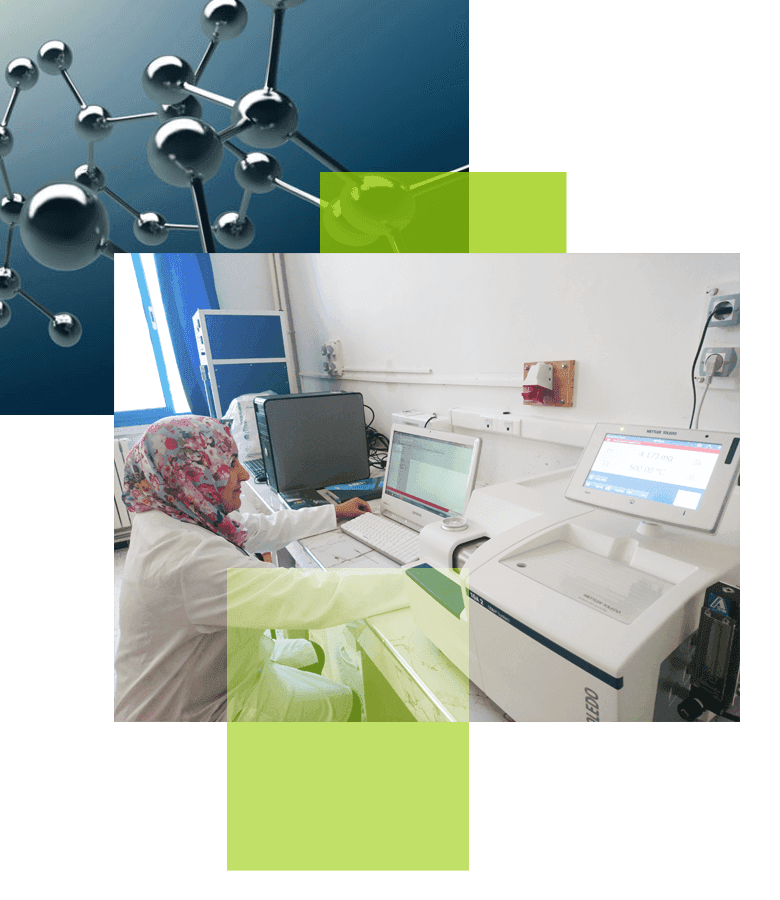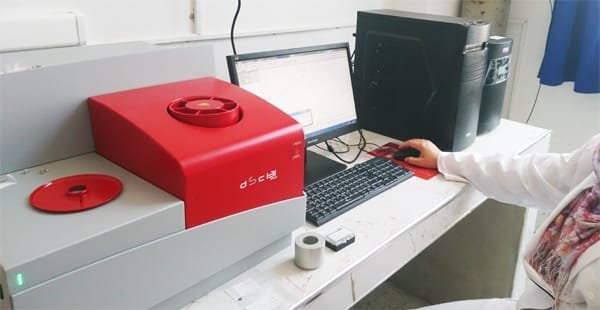Description
Materials science and engineering is that branch of modern science concerned with the study of structures and functional characteristics of polymers, metals, ceramics and composite materials in order to understand and even predict their behavior in service. It is based on fundamental sciences such as physics and chemistry, as well as on the engineering fields of mechanical and chemical engineering. Thanks to a high level of training, the engineer in Materials Engineering will have both the broad and in-depth knowledge and skills in specific areas.
In addition, each engineering student is required to build his or her personal and professional project from the 3rd year onwards.e year with the help of a tutor, as well as obtaining a doctorate at ENPC, if they are among the valedictorians and show good research skills. They can also be helped to set up their own start-up company or SME if their final study project is innovative.
Options offered
The engineer in materials engineering will develop the ability to master the broad structure-property relationships of a material. The curriculum is based on a balance between theory and practice: physics of materials; phase transformations; crystallography; mechanical behavior; elaboration processes of metallic, ceramic, polymer and composite materials; physics of semiconductors and components for microelectronics, optoelectronics and photovoltaics; innovative materials; characterization techniques.
Main Subjects Taught
Theory of materials: from structure to properties; Transfer phenomena and phase transformations; Solid state physics; Ceramics and polymer composites, structures and properties; Corrosion of metals and Deformation of materials; Surfaces and interfaces; Physics of semiconductors; Modeling of materials; Fabrication processes of thin films; Microstructure technology; Biomaterials; Semiconductor materials and macro and nanostructured properties


Equipment for laboratory work
It is important to point out that the department’s equipment can be used for both pedagogical work and scientific research.
- Laboratory for the preparation and metallographic observation of different materials Mechanical and electrolytic polishers (5), optical microscopes (2), rotavap (2), microbalance (2) with accessories to measure the density of solids and liquids, PH-meter (1).
- Laboratory for heat treatment and elaboration of metallic and ceramic materials : furnaces up to 1100 °C (2), 1300 (1) and 1500 °C (1) under air and controlled atmospheres, Calorimeter (1).
- Planetary mill (1) – 3D plastic printers (1) – Small extruder (1). – Atomic sorption (1) – Surface tensiometer (1).
- Electrochemical analysis technique: Potentiostat (1)
- Thin film deposition techniques : Sprayers (1) and Spin-coater (1).
- Thermal characterization techniques : DSCTmax 700°C, ATGTmax 1000°C, horizontal and tempering dilatometers.
- Electrical characterization techniques In-situ measurement of electrical resistivity (Tmax 400 °C) (1), electrical resistivity and Hall effect for conductors and semiconductors (1), small equipement to support laboratory experiemnts on semiconductors (power generators, elecrical wires and all other accessories to build electronic circuits).
- Microstructural characterization techniques : an X-ray Diffractometer (1), and a Scanning Electron Microscope (1).
- Mechanical characterization techniques Universal testing machine 100 kN: tension, bending and compression, microdurometer (1), Rheometer (1), diffusion test bench in liquids (1), diffusion test bench in gases (1), quenching dilatometer (1), differential dilatometer (1), didactic rotary fatigue machine (1), didactic creep machine (1) Piezometer (1).
- Spectroscopic techniques: Nano-Sizer (1), FTIR (1), UV-visible(1). Fluorimeter X (1)
Possible employment areas
- Research engineer in university laboratories and research centers,
- Engineers in the research and development laboratories of mechanical industry plants,
- Production engineer in metal production and processing plants (Alhajar Complex, Algal+), cement plants and polymer production and processing plants.
- Control and Quality Engineer
- Maintenance engineer
- Other trades that require knowledge of the design, manufacture and processing of different types of materials.
Economic partners
(Saidal, Pharmidal, AAHP, CMT, Sonatrach, Cement works, CPG…)


Employers
- Research and educational institutions: universities, nuclear research centers (CRNA, CRNB and CRND), the Center for the Development of Advanced Technologies (CDTA), research centers for renewable energies…
- Energy industries: Sonatrach and Sonelgaz,
- Metal processing and manufacturing companies: Complexe Sidérurgique of El Hadjar (Annaba), Complexe aluminium Algal+ of M’sila, Complexe Pelles and Grues, iindustry of construction of military machines, foundries,…etc
- Cement plants,
- Heavy construction and automobile manufacturing industries: SONACOME, Renault…
- Companies and SMEs manufacturing ceramics.
- The pharmaceutical industries
- The agri-food industries
- Medicine and dental surgery
